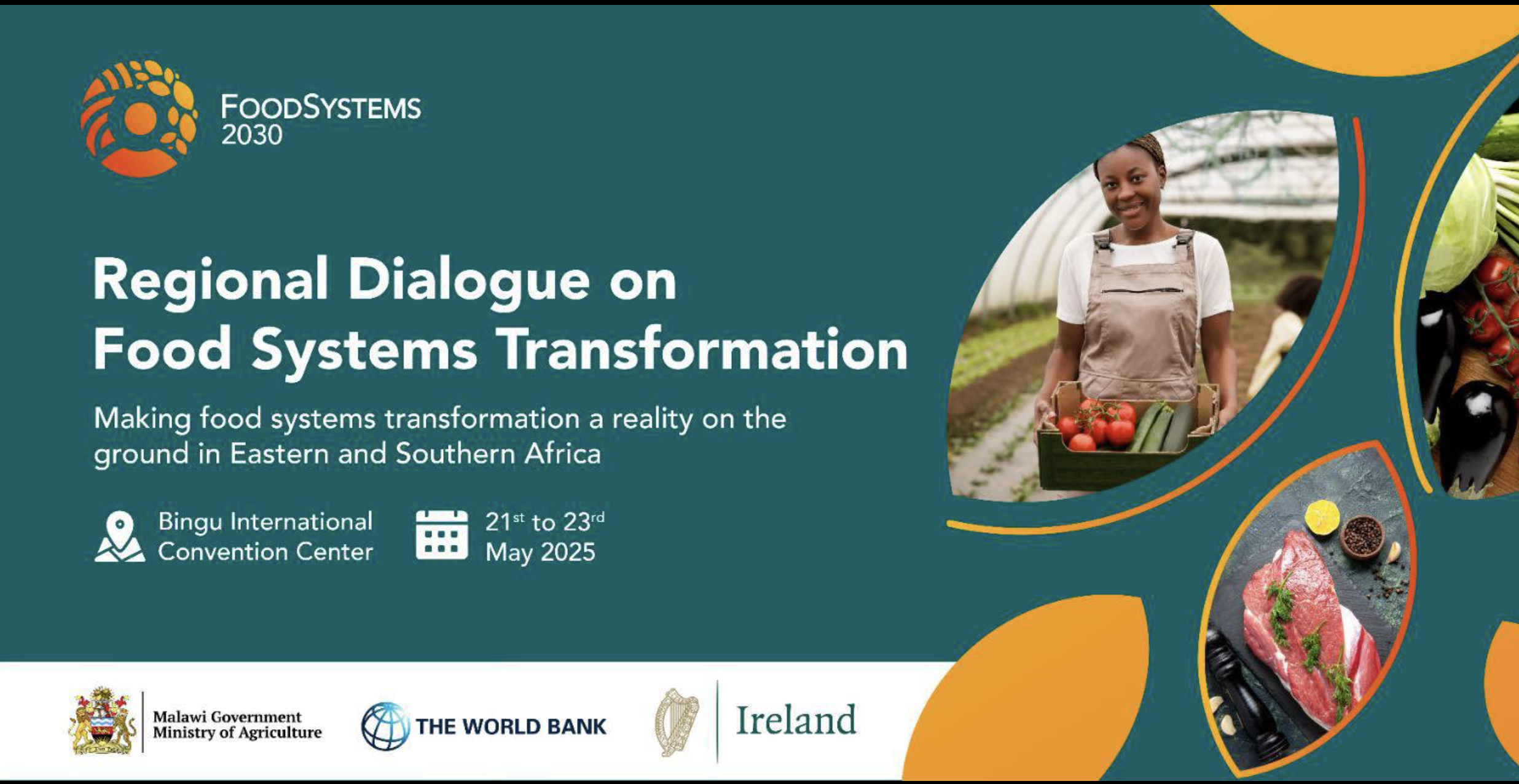
By Special Correspondent | Lilongwe, Malawi — May 2025
At the Regional Dialogue on Food Systems Transformation held in Lilongwe, Malawi, a paradigm-shifting presentation by Henry Msatilimo, a senior official from Malawi’s Ministry of Agriculture, offered a bold and innovative rethink of agricultural support programs. His presentation, titled “Repurposing Agricultural Support for a Sustainable, Productive, and Resilient Agriculture Sector,” highlighted how Malawi is turning away from input-heavy subsidy models and moving toward a soil health–centred future.
“Subsidies alone cannot save our agriculture if our soils are dead,” Msatilimo declared. “We are now investing in the very foundation of productivity—soil health.”
In a region where decades of fertilizer subsidies have failed to yield transformative results, Malawi’s decision to repurpose agricultural support around soil regeneration is being hailed as one of the most forward-looking strategies on the continent.
A New Direction: Why Soil Health Now?
Msatilimo began his presentation with a frank admission: Malawi has consistently met the CAADP benchmark of allocating over 10% of its budget to agriculture, with a large portion going into fertilizer subsidies under the Affordable Inputs Programme (AIP). Yet the expected gains in productivity and resilience remain elusive.
“Our yields are not where they should be, poverty remains high, and the soils are deteriorating,” he explained.
According to the Ministry’s assessments, Malawian soils are:
- Acidic and nutrient-poor
- Low in soil organic matter
- Increasingly dependent on synthetic fertilizers
The application of inorganic fertilizers without complementary practices, Msatilimo said, has become counterproductive. It has discouraged diversification, reinforced monocropping of maize, and contributed to soil degradation.
Hence, Malawi is taking a bold leap: Repurposing agricultural support toward soil health restoration, productivity diversification, and farmer empowerment.
The Pilot Program: Testing a New Model
To bring this vision to life, the Ministry launched an ambitious two-year pilot project in six Agricultural Development Areas across Malawi, covering the 2024/25 and 2025/26 seasons.
A total of 36,000 farmers are participating, equally divided into three groups:
- 12,000 under AIP (traditional subsidy)
- 12,000 under a semi-flexible support system
- 12,000 under a fully flexible model, allowing more farmer autonomy in input selection
In a radical shift from top-down subsidy delivery, participating farmers are required to implement at least one practice from three key categories:
- Soil health practices (e.g., composting, lime application, manure use)
- Water conservation techniques (e.g., minimum tillage, box ridging)
- Agroecological interventions (e.g., intercropping with legumes, crop rotation, vetiver hedgerows)
The pilot is supported by 144 trained extension workers (55 of them women) and uses NAMIS (National Agriculture Management Information System) for farmer registration and monitoring.
Early Results: A Promising Path Forward
Msatilimo shared promising preliminary findings from the first season of the pilot:
- Over 90% of farmers under the semi- and fully flexible models adopted soil and water conservation practices.
- Only 40% of farmers under the AIP model adopted similar practices, highlighting the limitations of conventional subsidy frameworks.
- 1,598 metric tons of inorganic fertilizer, 799 metric tons of organo-mineral fertilizer, and 360 metric tons of legume seed were distributed across the pilot.
- Lime was introduced—a first in many communities—for managing soil acidity.
“Farmers are not resistant to change,” Msatilimo noted. “They are hungry for knowledge and tools that give them agency and results.”
The pilot also tested an e-voucher system, and 90% of farmers successfully redeemed their inputs via SMS-based platforms. This digitalization component ensures greater transparency, accountability, and speed in input distribution.
Farmer Empowerment and Equity
Another powerful component of the pilot is its focus on inclusive empowerment. Out of the 23,853 farmers already trained:
- 11,258 are men
- 12,595 are women
Msatilimo emphasized that empowering women in soil management and decision-making is critical for sustainability, especially given their central role in household food production.
By requiring farmers to make agronomic choices, and by monitoring the yield impacts, Malawi is building a bottom-up knowledge economy in agriculture that could outlive seasonal programs and political cycles.
Lessons and Outlook: From Project to Policy
While the results are promising, Msatilimo cautioned that two years is not enough to deliver systemic change. He called for a programmatic approach rather than isolated projects.
“We need political courage to repurpose, not just reform,” he said. “This means difficult decisions backed by evidence—not guesswork or tradition.”
He also recommended:
- Embedding soil testing and mapping as core functions of the Ministry
- Creating a national framework for Integrated Soil Fertility Management
- Partnering with universities and development partners to build a research-to-policy pipeline
- Investing in farmer advisory systems and youth-led soil enterprises
The Ministry is also engaging the Ministry of Finance, recognizing that true reform must be reflected in budgeting processes and long-term fiscal planning.
Final Call: “Let Us Till with Wisdom”
In closing, Msatilimo invoked a striking metaphor: “Without fertile soil, there is no food. Without food, there is no life. Let us till with wisdom, not waste. Let us respect what feeds us.”
His presentation was more than a technical report—it was a declaration of intent for an agriculture system that prioritizes regeneration over extraction, knowledge over inputs, and results over rituals.
As the session ended, one thing was clear: Malawi is not waiting for global consensus—it is leading the way with local solutions rooted in its soil.

One thought on “Malawi Bets on Soil Health to Transform Subsidy Programs and Build Resilient Agriculture”
Comments are closed.